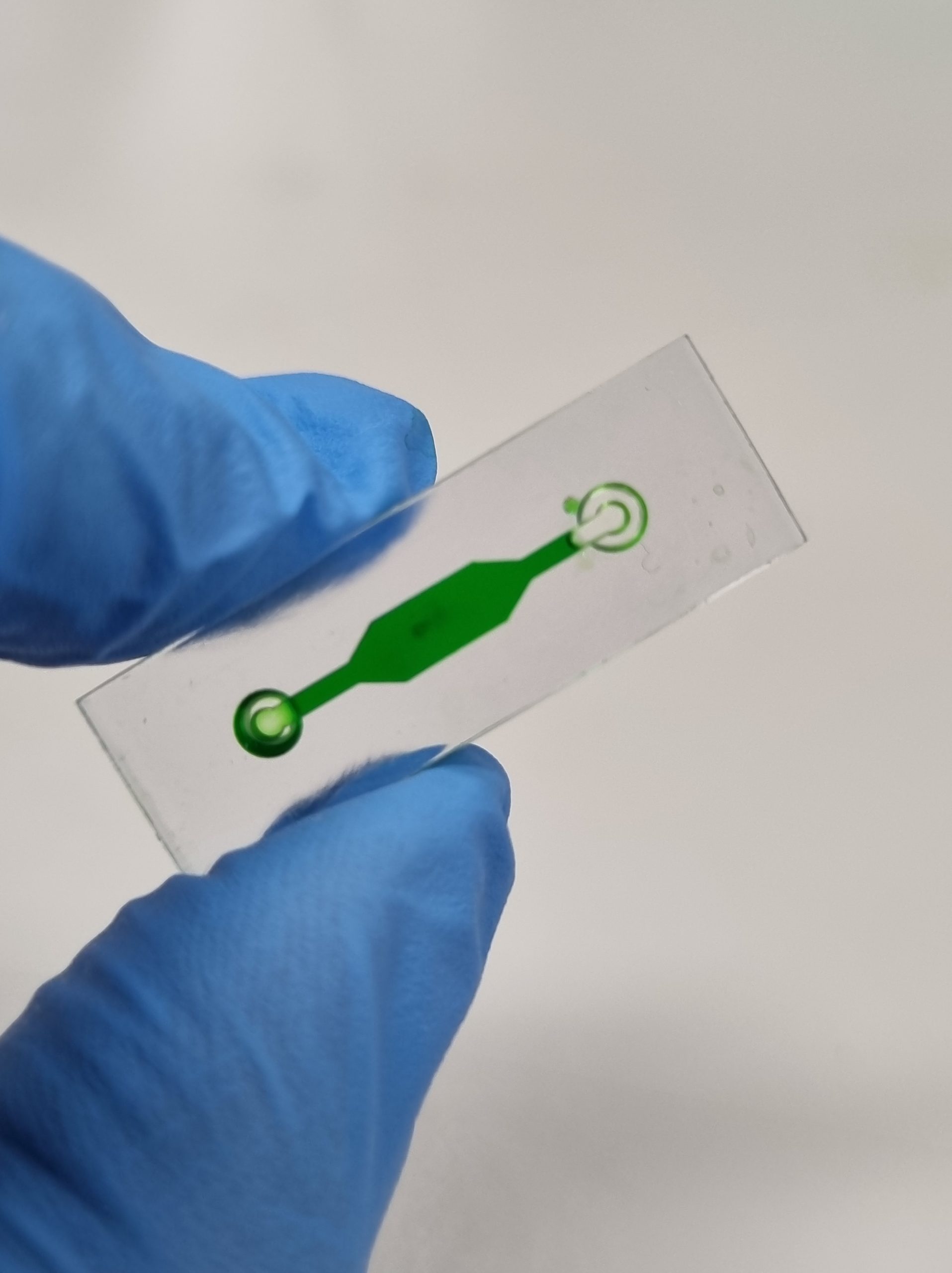Manufacturing microfluidic components for cell-based experiments is decidedly challenging. A research group at Queensland University of Technology investigated how modern 3D printing can help science here. The materials used came from Hamburg: MOIIN High Temp and MOIIN Tech Clear from DMG Digital Enterprises.
Microfluidics deals with the movement, control and analysis of fluids on a micro scale, i.e. on length scales below one millimeter. Microfluidic applications can be found in many areas of engineering, medicine or biology. 3D printing enables the fabrication of fine fluid channels in 3D space, without a tedious assembly of multiple parts. Prototyping speed can be increased as a result.
Researchers at Queensland University of Technology conducted a case study to investigate the suitability of 3D printing resins to fabricate microfluid chips for cell-based applications. Two 3D printed resins, MOIIN HighTemp and MOIIN Tech Clear, printed on ASIGA UV Max X27 DLP printers, were used. Three common microfluidic designs were created: 2D monolayer culture devices, column arrays, and channels for droplet generators. The team focused on MOIIN Tech Clear to investigate device compatibility under the microscope. Finally, the biocompatibility of the materials was investigated using tissue monolayer cultures.
In summary, the study states that” with MOIIN HighTemp and MOIIN TechClear, the 3D printing of microfluidic channels for cell-based applications are feasible. Both resins are observed to be biocompatible and highly amendable for microscopy imaging. This observation potentially opens many opportunities for rapid prototyping of new generations of microfluidic channels for biomedical applications.”
Find out more about MOIIN at moiin-resins.de.
For more information about the Queensland University of Technology, please visit qut.edu.au.
Subscribe to our Newsletter
3DPresso is a weekly newsletter that links to the most exciting global stories from the 3D printing and additive manufacturing industry.





















